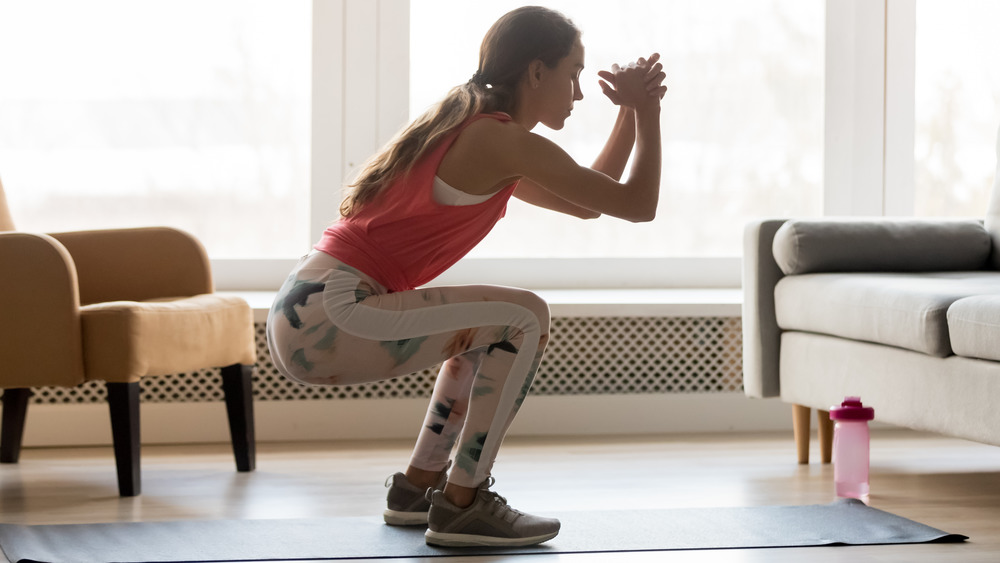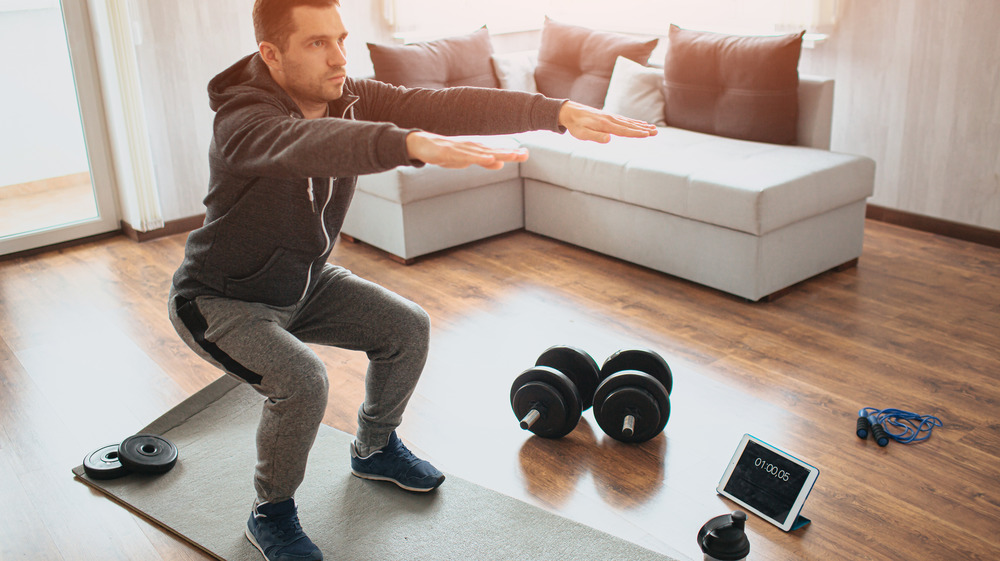What You Should Do If You Have Hip Pain When Squatting
Squats are great lower-body exercises, and a staple of virtually any strength training or mobility routine. But if you have tight hips, squats can also lead to some discomfort in your hip flexors, ranging from a mild feeling of tightness to a searing pain. Here's what you need to know to prevent and treat hip pain while squatting.
Start with some detective work: If you feel a deep pinch in your hip joint when squatting, you may be dealing with femoroacetabular impingement. That impingement can be caused by poor core stability, a tight hip muscle, or — most surprisingly — a stiff ankle that makes it difficult to let your knee track forward and over your foot as you sink into the squat (via Active PT and Sport Physical Therapy). That's the most typical cause of hip pain, but there are several other alternative issues, from hip bursitis to arthritis.
When you first notice the pain occurring, take a few days off from any exercise that exacerbates the pain in your hip. If this is a common occurrence, seek professional help from a doctor (to rule out any structural issues like osteonecrosis), or a physical therapist who can assess your flexibility and mobility and recommend exercises to help improve your squats (via Healthline).
Why do squats matter?
Getting to the bottom of what's causing your pain during squats is important. Because squatting is a functional exercise — one that you do throughout the day naturally, when picking up groceries or a child, for example — being able to perform this basic movement isn't just about fitness, it's about quality of life. Therefore, it's one of the most foundational exercises.
"Squats are a great exercise because they activate so many bones and joints at once, such as the hips, knees, feet, and ankles, as well as muscles like the quads, gluteals, hip flexors, hamstrings, and calves," physical therapist Andy Sobuta told Harvard Health Publishing. Being able to do a squat is a great indicator that you're healthy, so don't simply give up on your workouts after the first sign of pain: Work with an expert to diagnose and treat your hip pain before it impacts your quality of life.
Don't forget: If intense pain continues after your workout ends, if you can't put weight on your leg, or if you're feeling any other symptoms that could indicate a more serious infection, seek medical attention right away (via the Mayo Clinic).


